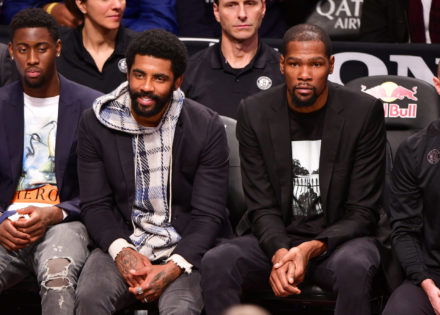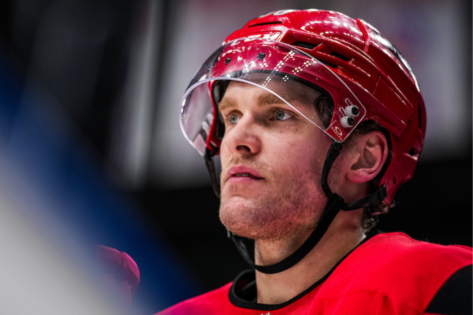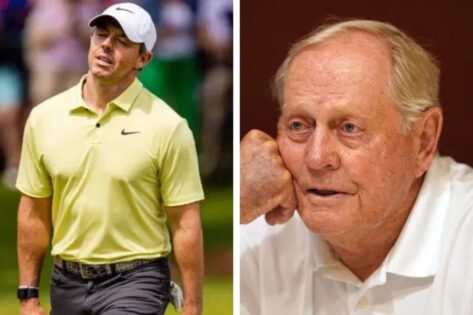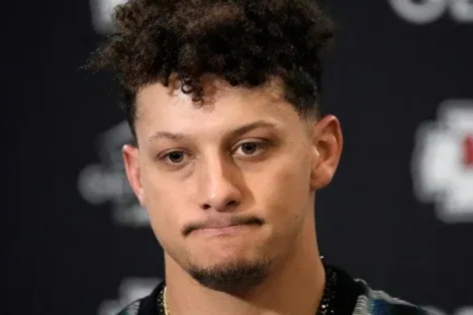There was a time when All-NBA ballots told the story of a season. The MVP ladder? A reliable metric of who changed the game. But this year, something’s off. Something’s missing. Actually—multiple people are missing.
Victor Wembanyama. Kevin Durant. Kyrie Irving. The three of the most electric players in the league. However, none of them will end up on a single award ballot. Not because they weren’t dominant. But because they didn’t play 65 games.
When the NBA’s new collective bargaining agreement went live last summer, it carried with it a sharp little clause buried beneath the headlines: To be eligible for MVP, All-NBA, DPOY, or Most Improved, a player must appear in at least 65 games. Not just check-in. They must play 20+ minutes. And they get just two games under that limit before they’re disqualified.
MVP: A Race of Ghosts and “Almosts”
Let’s start with Wemby. Victor Wembanyama didn’t just play basketball this year. He distorted it. 24 points, 11 boards, 3.6 blocks a game. On some nights, he looked like the second coming of both Duncan and Durant—if they were seven-foot-four and born in a lab. But a DVT diagnosis shut him down after 71 days of chaos. He finished with 65 games, but only 64 above the 20-minute mark. Just like that, Wemby’s transcendent rookie season became ineligible for awards.
Joel Embiid, the reigning MVP, averaged a cartoonish 34.7 PPG this season. For weeks, he made 40-point triple-doubles look routine. But he sprained his meniscus in January and never made it back to the 65 mark. No MVP, No All-NBA, No $40M supermax trigger.
Kyrie Irving, finally healthy and finally at peace in Dallas, turned in one of his most mature seasons yet. Then came the knee. Then came the limit. He’ll finish with 58 games—brilliant, but invisible on paper.
Anthony Davis, who was traded to the Dallas Mavericks mid-season, played between 49 and 51 games. His dominant two-way play—averaging around 25 points and 11 boards—wasn’t enough. He misses the cut.
Luka Doncic, despite a stellar campaign split between Dallas and Los Angeles, came up short with just 49–50 games due to early-season injuries. It was the first time since his rookie year that he wasn’t selected for the All-Star team.
Franz Wagner, Orlando’s rising star, hovered just below the threshold, playing between 57 and 60 games. Despite being a core piece in the Magic’s playoff surge, he’ll be left off.
And then there’s the rest:
Jimmy Butler III: Only 35 games played before heading to the Warriors. Out.
Kristaps Porzingis: 41 games. Out.
LaMelo Ball: 47 games. Out.
Zion Williamson: 30 games. Out.
Kawhi Leonard: 36 games. Out.
Lauri Markkanen: 47 games. Out.
This is what the MVP race has become: A collection of “what could’ve been.”
DPOY: Defense Wins Games, But Not Awards
This year, Defensive Player of the Year isn’t about defense. It’s about survival.
Alex Caruso wreaked havoc on the perimeter for the Thunder, shutting down guards and wings alike. But with only 54 appearances, he’s disqualified. Isaiah Hartenstein, the unsung wall in New York’s paint, played 57—but minutes played brought him down. Ausar Thompson flashed shades of prime Iguodala, especially in transition defense, but couldn’t stretch his rookie campaign beyond 58 games.
Nov 1, 2024; Portland, Oregon, USA; Oklahoma City Thunder guard Alex Caruso (9) reacts after a foul call during the third quarter at Moda Center. Mandatory Credit: Brian Murphy-Imagn Images
Kris Dunn actually logged 72 games—but he didn’t clear the 20-minute barrier enough times. His case is a technicality, but under the current CBA, a disqualifying one.
Then there’s Goga Bitadze, Keon Ellis, and Franz Wagner—glue guys who changed the game without headlines. They switched, rotated, and walled off paint attacks. But they didn’t cross 65.
Jalen Suggs brought grit to Orlando’s guard rotation. Jalen Johnson and Dean Wade held down second units with their disruptive defense. Dereck Lively II and Chet Holmgren, two rookie anchors, kept the rim on lockdown—until injuries hit.
It’s not just that good defenders were left out. It’s that the definition of defense-worthy shrank. Less about impact. More about availability.
MIP: Most Improved or Most Durable?
This was always the feel-good award. A nod to the underdog. A guy who figured it out, bet on himself, made the leap. But this year? That leap better have included 65 healthy games.
Trey Murphy III was on a tear—before an ankle injury halted him at 53 games. Jeremy Sochan flashed flashes of playmaking growth but never built enough consistency. Tari Eason, a force off the bench for Houston, was trending toward a breakout—but injuries again disrupted the arc.
Kevin Durant is a surprise mention here. While not a traditional MIP candidate, some ballots floated his name due to a refined defensive role and leadership stretch—but he, too, missed key stretches.
Mar 24, 2025; Phoenix, Arizona, USA; Phoenix Suns forward Kevin Durant (35) reacts on the court during the fourth quarter against the Milwaukee Bucks at Footprint Center. Mandatory Credit: Mark J. Rebilas-Imagn Images
Fred VanVleet, expected to be Houston’s adult-in-the-room, played well but didn’t cross the threshold. Same for Norman Powell, a consistent double-digit scorer and spark plug, but short on games.
Santi Aldama quietly improved across the board for Memphis. Ty Jerome, a role player turned crucial rotation piece, flirted with the game count. But did they inspire the kind of leap the MIP once stood for?
“I think it’s a stupid rule,” said Tyrese Haliburton, “like plenty of the guys in the league. But this is what the owners want, so as players, we gotta do our job and play in 65 games if we’re able to.”
The award used to be about growth. This year it’s about endurance. And that changes how we tell stories. MIP isn’t just who leveled up—it’s who stayed upright long enough to prove it.
The Invisible Toll of the 65-Game Line
The new rule hasn’t just shifted the voting. It’s changed the economics of greatness. For stars like Embiid, All-NBA selections are tied to supermax clauses—up to $40M in bonuses, escalators, and future extension eligibility. For others, it affects shoe deals, marketing language, and even legacy. Therefore, it’s not just about the trophy, it’s about leverage. Awards validate value. They shape careers.
For players—especially older ones—it’s a tightrope. Rush back, and you risk long-term injury. Wait too long, and you might disqualify yourself from history.
“How is this good for the league?” asked Bill Simmons. “How is this good for a guy who feels like, ‘I’m not ready to come back yet. But I have to come back ’cause I have $40 million at stake basically, so I’m gonna come back.’ But now, this has set him back.”
The NBA wanted to send a message: Play more games, earn more praise.
And yes, in some ways, it worked. We saw guys like Anthony Edwards and Tyrese Maxey push through bumps and bruises to hit 65. We saw MVP candidates like Jokic and Shai Gilgeous-Alexander adjust their load with the finish line in sight.
But we also lost the nuance. What happens when a player dominates for 60 games and gets injured? What about role players who matter more in 17 minutes than someone who jogs for 21? Does playing 65 make you great? Or just eligible?
The post Who Are the Ineligible Players for NBA Awards Due to 65-Game Rule? Featuring Kyrie Irving, Kevin Durant and More appeared first on EssentiallySports.



